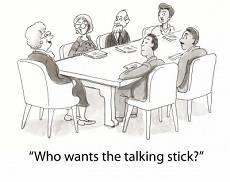September 17, 2013
Businesses report a growing appetite for social media work tools
Social media, as politicians and celebrities are all too aware is a double edged sword. Just last week David Cameron read out a Twitter message during Prime Minister’s Questions sent to a Labour MP, who had asked people for suggestions about what to ask at PMQs. The first reply was “how happy are you that the Labour leader will still be in place at the next election?” And Cameron himself has not been exempt to the odd twitter gaffe. Social media is such a powerful tool however, that employers can’t afford to ignore it – so demand for enterprise social networks – business tools that use Facebook-style features to allow staff to interact with one another on work projects are on the increase. (more…)






















August 27, 2013
Forget Gen Y – the future workplace is multigenerational
by Mark Eltringham • Comment, Flexible working, Knowledge, Legal news
(more…)